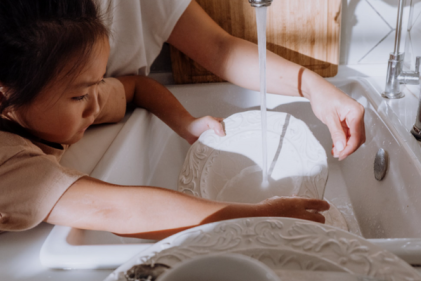Is your child the happy-go-lucky sort? Or a bit of a worrier? Either way, you can boost their happiness by instilling in them a certain way of thinking.
The field of positive psychology centres on the idea that people can make themselves happy just by changing how they think and act. Happiness is considered more of a habit than a God-given blessing.
So while some of your happiness is biologically determined, there are plenty of things you can do to be happier.
These 10 questions focus your children on how to make themselves happier. Ask them often enough and eventually, your kids will internalise them and ask them in their own heads.
In other words, you'll have given them the gift of happiness. What could make you more content?!
What was your favourite part of today?
This is a good one to ask at bedtime as it will leave them feeling content before sleep. It also instils a habit of focusing on the best thing that happened in any given day, rather than the worst.
What are you grateful for?
You could ask this at the dinner table, with each member of the family saying what they're thankful for in life. Sometimes kids can get bogged down in the things that aren't going right, and this question will force them to focus on the good things instead.
What are you going to do about that?
A feeling of powerlessness is strongly linked to depression. With that in mind, do what you can to make your children realise that they do have the power to take action. If they're not happy with something at school, for instance, asking them what they'll do to sort it out is a good way to remind them that things only happen if you let them...
How can you look on the bright side?
No matter what happens in your child's life, it's vital that they're able to process the positives. Otherwise, they might develop negative thinking. Research has shown that negative thinkers don't do very much in life. Why? Because they can usually think of a good reason not to. You want your children to actually live their lives, don't you?
How did that make you feel?
An important part of happiness is being able to notice and express your own emotions. If you can verbalise what you feel, even if you're experiencing a negative emotion, you can process it and get support from others. If you can't, you'll stew and the feelings will only fester.
What do you think he/she feels?
While it's important to be aware of your own emotions, it's also vital to be aware of others', and it's not just for the sake of peace and harmony.
If your child can empathise with other people, chances are they'll have stronger interpersonal relationships, feel better about themselves for thinking of others, and derive more meaning from life. (Getting deep now!)
What part of that can we learn more about?
Happy people are those who are curious and always learning. So when you're watching TV and an animal programme comes on, if questions arise, google them.
What do you want to do at the weekend?
Research shows that getting excited about positive experiences brings more happiness than the experiences themselves. Once your child is old enough to differentiate between today and tomorrow, get them to think about all the fun things that'll be happening in the days to come.
When do you feel happiest?
If you direct your child's attention to the experiences that they most enjoy, they'll start to realise they can choose to proactively increase their time spent in activities that make them feel best about themselves...
What do you want to do outside today?
Research has shown that getting out and about in the great outdoors is vital to our health and wellbeing. Plus, once you're outside, you're more likely to play sport or do something physical, and you know what they say about endorphins aka 'the happy hormones!'









